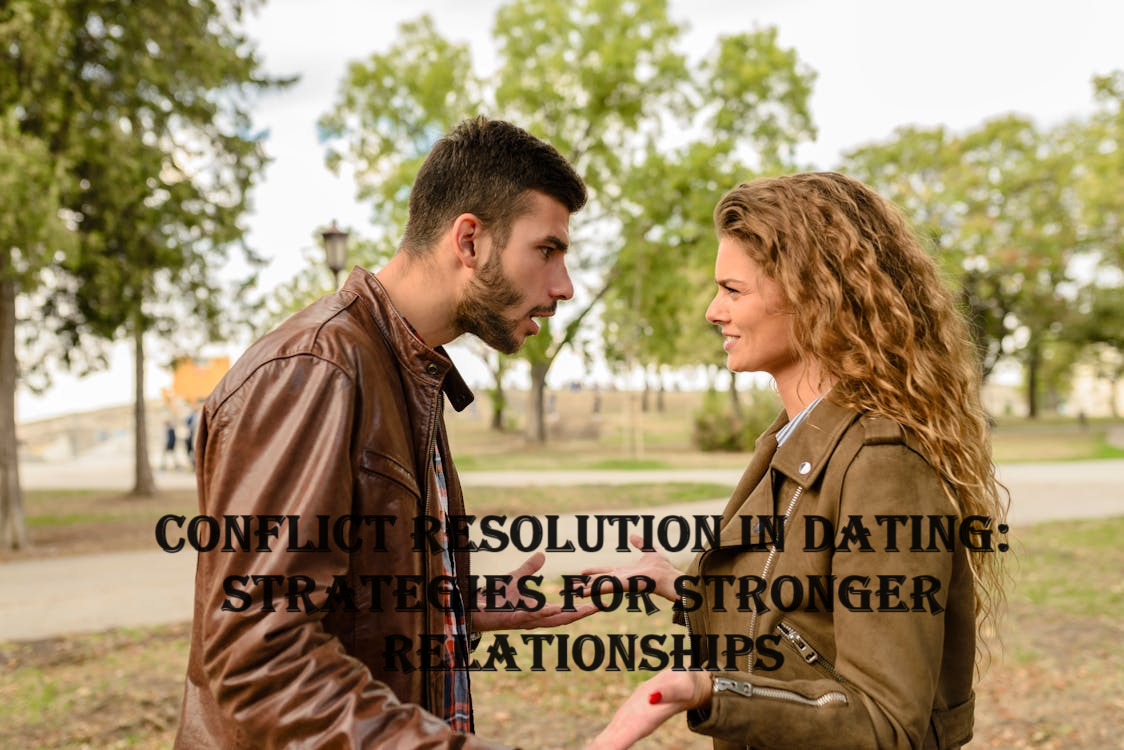Conflict Resolution in Dating: Strategies for Stronger Relationships
Conflict Resolution in Dating: Dating is an exciting journey full of discovery, romance and connection. However, it is also a path that can sometimes lead to conflict. Communicating these differences effectively is critical to building healthy, long-lasting relationships. In this article, we’ll explore strategies for dealing with conflict in dating, ensuring that you and your partner can face challenges together and grow stronger.
Understanding Conflict in Dating
Conflicts in dating are natural and can arise from differences in opinions, values, or expectations. Whether it’s a minor disagreement about weekend plans or a more pressing issue regarding future goals, how you handle these conflicts can have a huge impact on the relationship. Effective conflict resolution can help partners understand each other better, strengthen their relationship, and develop mutual respect.
The importance of conflict management
Ignoring or avoiding conflict may seem like a quick fix, but it often leads to bigger problems down the road. Escalating conflict helps prevent misunderstandings, reduce resentment, and promote open communication. It is an opportunity for both partners to express their feelings, understand each other’s point of view and find common ground.
Strategies for effective conflict resolution
-
Practice active listening.
Active listening is the foundation of effective communication. When conflicts arise, make sure you and your partner are fully present and focused. Avoid interference and try to understand each other’s point of view. Pay attention to what your partner is saying and ask clarifying questions if needed. This not only helps to solve the problem but also shows respect for your partner’s feelings.
-
Communicate openly and honestly.
Clear and honest communication is essential to resolving conflicts. Express your feelings and concerns openly without making accusations. Use “I” statements, such as “I feel frustrated when…” instead of “You always…” This approach reduces defensiveness and opens the door to constructive dialogue.
-
Stay calm and manage emotions.
Conflicts can be emotionally charged, and it’s important to manage your emotions during a conversation. Take deep breaths and stay calm. If you find yourself feeling overwhelmed, it may be helpful to take a short break before continuing the conversation. Managing your emotions helps keep the discussion productive and respectful.
-
trive to understand, not to win.
The goal of conflict resolution is not to “win” the argument, but to understand each other’s point of view and find a solution that works for both parties. Instead of focusing only on your needs, focus on finding common ground and making compromises. This mindset promotes cooperation and strengthens relationships.
-
Use problem-solving techniques.
Approach is the opposite of a problem-solving mindset. Identify the root cause of the problem and work together to find a solution. Brainstorm possible solutions and evaluate them together. Be willing to compromise and adjust your expectations as needed. Collaborative problem solving helps find mutually acceptable solutions and strengthens teamwork.
-
Set boundaries and respect them.
Boundaries are important in any relationship, and setting them can help prevent conflict from escalating. Be clear about your boundaries and respect your partner’s boundaries as well. Discuss what is acceptable and what is not, and be willing to adjust if necessary. Respecting boundaries helps maintain a healthy and balanced relationship.
-
Avoid blaming and criticizing.
Blaming and criticizing can damage trust and respect between partners. Instead of focusing on who is at fault, focus on solving the problem. Use constructive feedback and avoid personal attacks. Blaming or criticizing your partner can lead to defensiveness and hinder effective communication.
-
Focus on solutions, not problems.
When discussing conflicts, it’s easy to get caught up in the issue. Focus on finding solutions and positive outcomes. Discuss what could be done differently in the future and how to prevent similar conflicts. This forward-thinking approach helps create a proactive approach to problem solving.
-
Get professional help if needed.
Sometimes conflicts can be complex and difficult to resolve on your own. If you find that you and your partner are struggling to navigate conflict or if conflicts are becoming frequent and intense, it may be beneficial to seek professional help. Relationship counselors or therapists can provide guidance and tools to improve communication and conflict resolution skills.
-
Reflect and learn.
After resolving the conflict, take time to reflect on the experience. Consider what worked well and what could be improved for future conflicts. Learning from each experience helps build stronger conflict resolution skills and improve overall relationships.
Building a strong relationship through conflict resolution
Effective conflict resolution is not just about resolving differences. It’s about building a stronger and more resilient relationship. By implementing these strategies, you can develop a deeper understanding of your partner, improve communication, and create a supportive environment where both partners feel valued and heard.
Conflicts are an inevitable part of any relationship, but how you handle them can make all the difference. Approach contrasts with a positive attitude, willingness to understand, and determination to find solutions. By doing so, you will strengthen your relationship and pave the way for a healthier, more fulfilling partnership.
Read More: How to Get Your Ex Girlfriend to Sleep With You (And Win Her Back)













